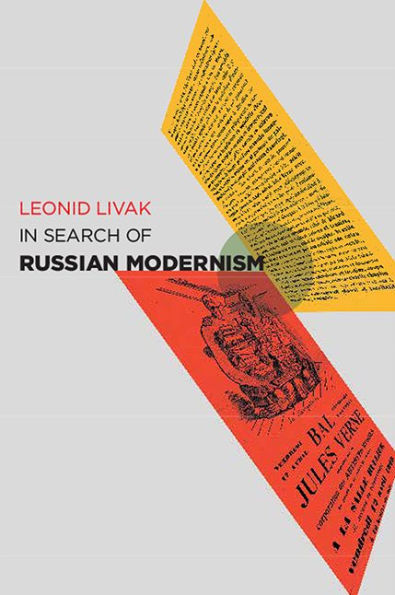Leonid Livak’s In Search of Russian Modernism was born out of a “cry of desperation.”
“I was fresh out of a project and felt it was time to turn over a new leaf,” says Livak, a professor in the Faculty of Arts & Science’s Department of Slavic Languages & Literatures. “I was reconfiguring several of the courses I teach on 20th century Russian literature and culture, and it occurred to me that there was little in the field of Russian modernist studies that could satisfy my intellectual curiosity.”
Frustrated by the ongoing “methodological impasse” in his field, Livak set out to spark a debate about the way academics continue to approach Russian modernism after the fall of the Soviet Union in 1991.
"The way we thought about, wrote about and presented Russian modernism to students was no longer satisfactory to me in light of all that we had learned since the disintegration of the Soviet Union,” says Livak.
Livak’s In Search of Russian Modernism, published by Johns Hopkins University Press as part of its Hopkins Studies in Modernism series, challenges many of the premises that existing work on Russian modernism is built on, suggesting alternative approaches to this rich and complex period of art and culture.
“If you take a look at the way people write about Russian modernism — and especially teach Russian modernism — you realize that there is this intellectual academic inertia that actually keeps people from thinking about it in new ways,” says Livak.
Livak’s own shift in thinking garnered him this year’s prestigious Modern Language Association (MLA)’s Aldo and Jeanne Scaglione Prize for Studies in Slavic Languages and Literatures.
Awarded biennially, the prize celebrates outstanding scholarly work on the linguistics or literatures of Slavic languages.

And while Livak says the honour was surprising but gratifying — he hopes the prize will bring to the attention of fellow researchers and teachers the need for a renewed conversation about approaches to Russian modernism. More so, he hopes the award will bring a new audience to Russian modernist studies.
“I wanted people in English literary studies, French literary studies, German literary studies — who I knew read the books in the Hopkins Studies in Modernism series — to pay attention,” says Livak.
Praised by the selection committee as a “bold undertaking” and “model of exemplary scholarship,” the MLA committee commended Livak’s In Search of Russian Modernism for confronting “inherited assumptions about the field, including its canons and methodologies for critical analysis, and in their place proposes mapping coexisting transnational modernist cultural communities in which a multitude of artistic practices, ideas, and events evolve over time.”
“The MLA prize is not just a Slavic prize, it’s a general prize in literary studies,” says Livak. “So I'm hoping that this will open the much overdue discussion about how we speak about Russian modernism, the questions we ask about Russian modernism and how it fits within transnational modernist studies.”
Livak finds himself once again at a transitional moment, having just published multiple books. His most recent was released last month in Moscow and deals with the life of Ludmila Savitzky, the Russian translator who introduced James Joyce to French audiences.
His next work — with support from the Social Sciences and Humanities Research Council’s Insight Grant — will detail the cultural history of the Russian immigrant community that fled to France during the Second World War.
“It's a story about war and cultural survival during the war,” says Livak. “Similar to Syrian refugees in Turkey — it’s a very large number of people who are culturally distinct from the rest of the population where they have taken asylum. What do you do to keep your cultural identity in the time of international conflict?”
As Livak sets out on his new project, he’s hopeful that his prize-winning work will spark new conversations both in his field of study and beyond it. “I tried to do something different,” says Livak. “I tried to really find a crossroads and a transnational perspective that would appeal to many colleagues in different national fields who deal with the transnational phenomenon of modernist culture.”
The MLA promotes the study and teaching of languages and literatures through its programs, publications, annual convention and advocacy work. Founded in 1883, the MLA is one of the world’s largest scholarly associations, with more than 24,000 members in 100 countries.

